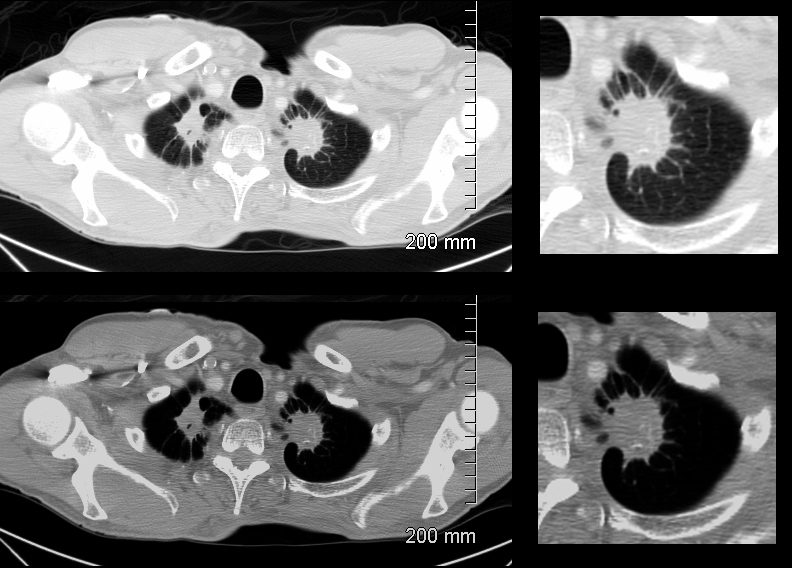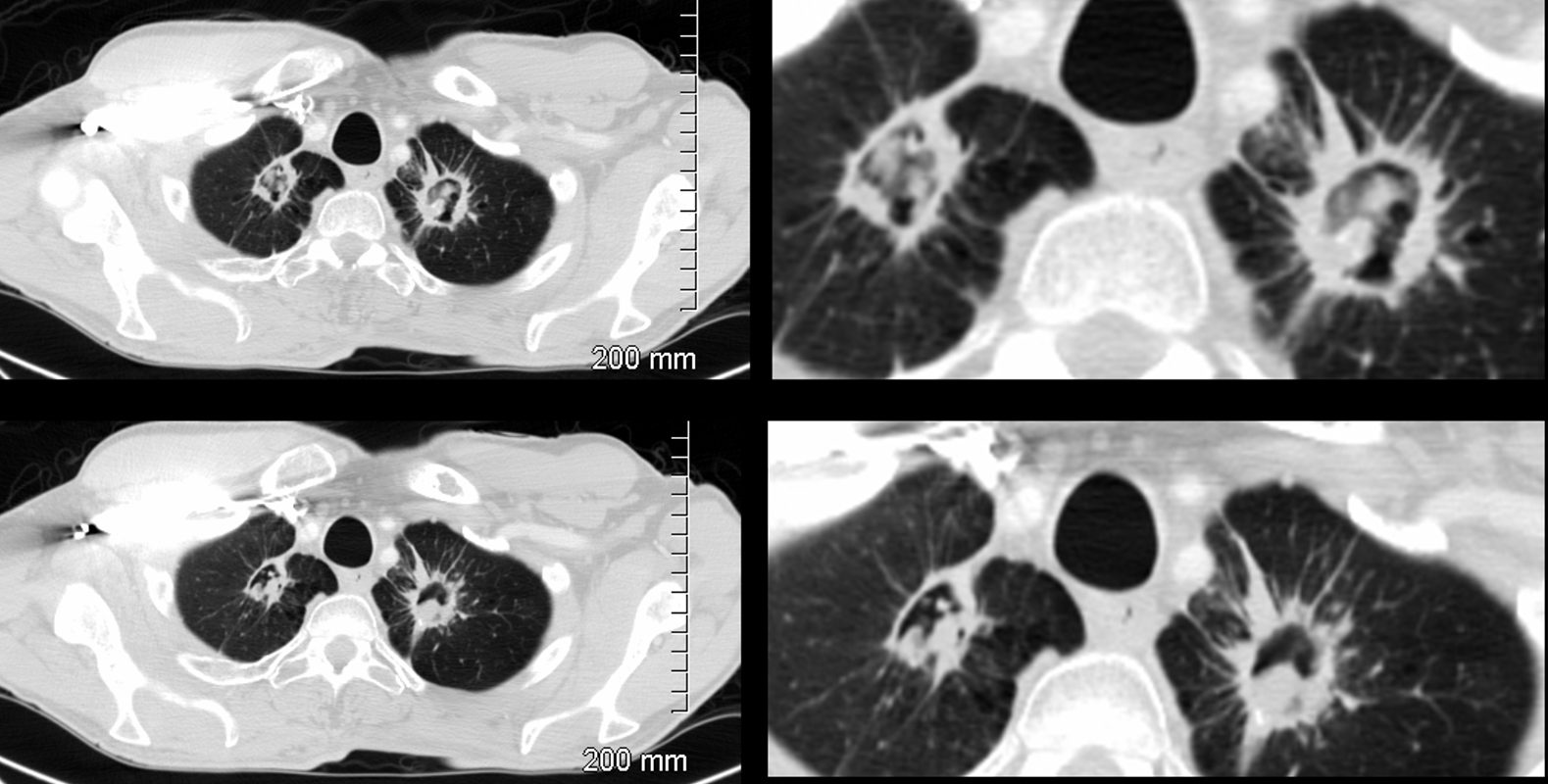- Buzz Words
- colonize
- cavities in the lungs,
- aspergillomas may also be present in the lungs.
- colonize

Ashley Davidoff TheCommonVein.net

46 year old immunocompromised male with a fever. CT shows small biapical cavitations with internal solid debris .
Diagnosis probable Chronic Pulmonary Aspergillosis with Aspergillomas in TB cavities
Ashley Davidoff TheCommonVein.net
- Chronic Pulmonary Aspergillosis (CPA):
- A long-term fungal infection primarily caused by Aspergillus species in the lungs.
- Affects individuals with underlying lung conditions like
- COPD
- bronchiectasis
- tuberculosis
- Generally occurs in people with compromised immune systems or damaged lung tissues.
- Types of CPA:
- Chronic Cavitary Pulmonary Aspergillosis (CCPA):
- Formation of lung cavities with fungal growth.
- Symptoms: Chronic cough, weight loss, fatigue, coughing up blood.
- Chronic Fibrosing Pulmonary Aspergillosis (CFPA):
- Invasive growth leading to lung tissue scarring.
- Symptoms: Shortness of breath, fatigue, persistent cough.
- Chronic Necrotizing Pulmonary Aspergillosis (CNPA):
- Progression from CPA, involving tissue necrosis.
- Symptoms: Cough, fever, weight loss, chest pain.
- Chronic Cavitary Pulmonary Aspergillosis (CCPA):
- Diagnosis:
- Medical history, symptoms, and risk factors assessment.
- Imaging tests like chest X-rays, CT scans, showing characteristic signs.
- Laboratory tests including sputum cultures and serological tests.
- Treatment:
- Antifungal medications (itraconazole, voriconazole) to control the infection.
- Prolonged treatment may be needed, often for months to years.
- Surgical removal considered in specific cases to remove fungal masses.
- Management of underlying lung conditions and overall health is important.
- Prognosis:
- Prognosis varies based on the type of CPA and the patient’s health.
- Early diagnosis and appropriate treatment improve outcomes.
- Regular monitoring and follow-up are essential to manage the condition effectively.
- Prevention:
- Managing underlying lung diseases and conditions.
- Minimizing exposure to environmental mold and fungi.
- Adhering to prescribed treatments and medications.
